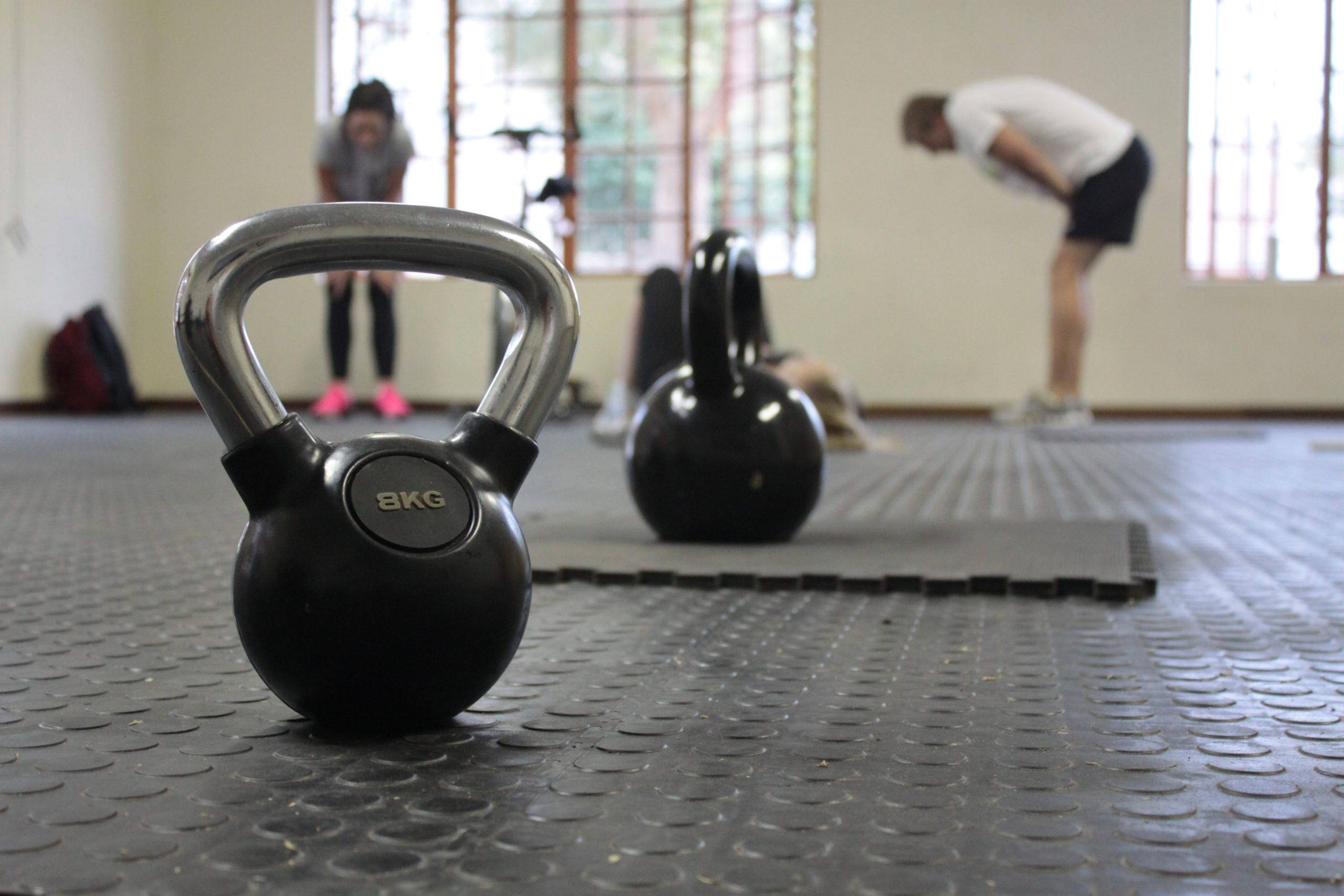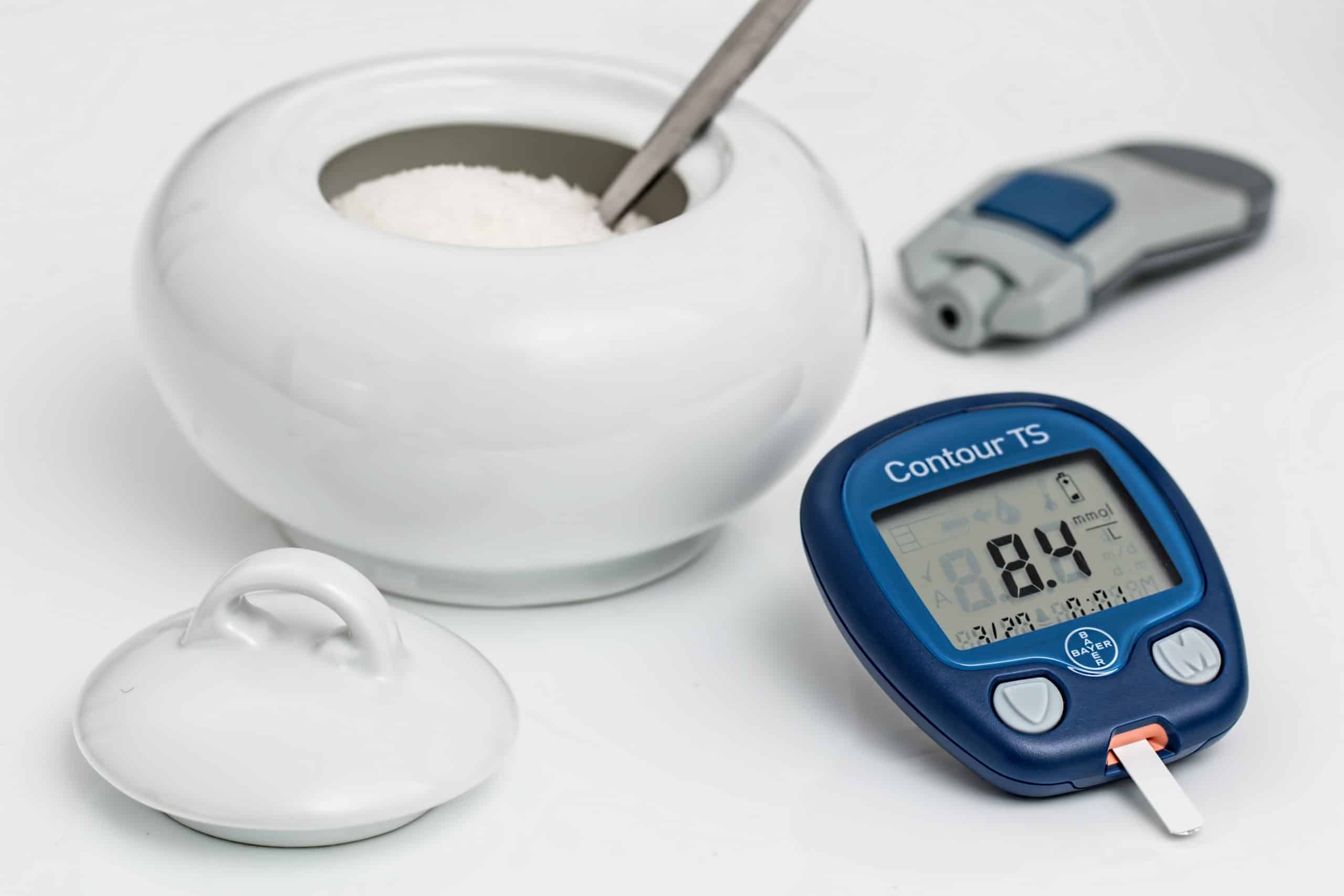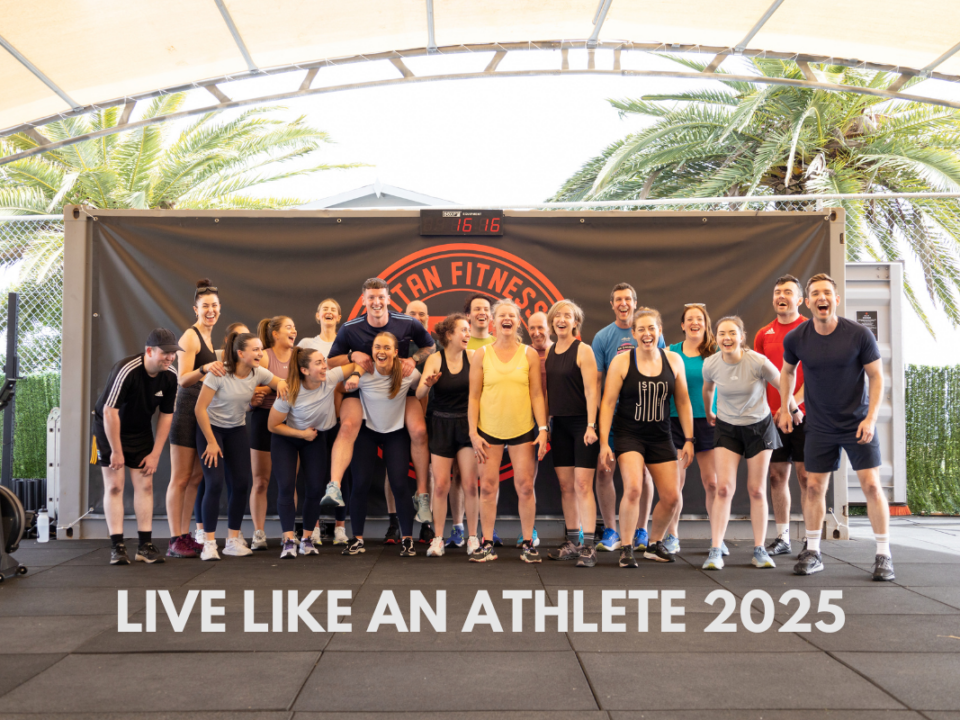Summary
- The importance of everyday nutrition for your health and performance
- Nutrition in the lead up to a round of golf
- Are you underestimating the importance of hydration during your round?
- Fueling and recovering properly between rounds
What to eat in the hours leading up to a round?
When it comes to the benefits of nutrition for health or performance what really matters is your long-term daily habits and how you are meeting your specific daily nutrition needs over time. Historically nutrition for golf performance was not something that was widely considered as important for the golf community. We have also seen the examples of fast food, beer and even cigars before, after and even during golf! There is no doubt that for social golf or a one off game nutrition planning doesn’t have to be executed with precision, but any golfer that wants to perform at the highest level consistently must take their nutrition seriously. I often get asked about really specific time periods, ‘specific foods and drinks that may impact golf performance during a round?’ for example. These questions suggest a lot of people miss the bigger picture when it comes to nutrition for impacting golf performance.
 When it comes to any sport you must consider the physical demands of the game, golf is no different.
When it comes to any sport you must consider the physical demands of the game, golf is no different.
Nutrition for golf can be broken into 2 broad categories;
- Off course nutrition
- On course nutrition
With regard to off course nutrition you must consider what does your training week look like and what are the demands on different days? What days are you in the gym, running, on the range, on the course doing skills work or playing rounds? All of these exercise sessions have varying demands and must be met by an appropriate nutrition plan if you want to get the most from them. Then you must consider your personal performance goals, do you want to increase lean mass, strength, power or reduce body-fat? Your nutrition plan must consider all the key elements of physical performance.
For on course nutrition, a sound nutrition plan can help all aspects of a golfer’s performance through the following:
- Maintaining optimum energy levels for practice or competition
- Ensuring better focus and concentration
- Facilitating rapid recovery from training or golf rounds
- Reducing the risk of injury
- Reducing the risk of illness
The performance phases
Closer to your practice round or competition, nutrition is something that must be considered in phases. There is the preparation phase, the performance phase and the recovery phase after you play the round. The preparation phase will mainly focus on the 24 hour period before the round where there is a moderate increase in energy intake and a close monitoring of hydration by following the weight, thirst, urine colour (WTU index). The performance phase will include the foods / fluids you eat on course during competition to maintain energy levels and hydration, which, we will deal with later. With regard to food selection, a golfer can choose exercise recipes to meet their needs during days they are on course or in the gym.
 Physical and mental demands of a round of golf
Physical and mental demands of a round of golf
A typical round of golf (18 holes) usually takes 4 to 5 hours to complete and involves walking an average of 7-9km. This would be considered sustained low to moderate intensity exercise. Depending on the course, if a player is carrying their bag or pushing a trolley, the energy expenditure of a round can be anywhere between 1000-2000 calories. This is a large level of energy expenditure that must be off-set by on-course nutrition and in the recovery phase post round.
 Concentration endurance
Concentration endurance
Golf is different to most other sports due to the length of a round and the high demands for intense focus and concentration, in short intervals over a 4-5 hour period. This can be called concentration endurance and is heavily impacted by a golfer’s nutrition practice. In the preparation phase it is hugely important to eat a meal that is slow digesting, avoids any stomach distress and maintains energy levels over a 2-3 hour time frame.
Unlike high intensity team sports where athletes must eat a large meal at least 3-4 hours in advance of kick-off, golfers can have a large meal within 2 hours of tee time without suffering stomach upset in the onset of beginning the round.
Making the right food choices for a round
The foods that people eat are individual to them, some people may like a warm meal such as cooked porridge with banana and milk, eggs and brown toast, or sweet potato and chicken while others may prefer a quinoa chicken salad or brown bread sandwiches with soup. Each of those meals will provide the body with a slow release of energy while avoiding any stomach upset and dips in energy throughout the performance. If you have an early morning round it’s important to have something pre-prepared for breakfast the night before. Overnight oats, a breakfast smoothie or a Bircher muesli are good options as they are slow digesting and have a decent source of protein. There are lots of options for a quick breakfast or on the go snack on our recipe page that golfers can use to fuel up or maintain energy levels on the golf course.
 What food should the golfer be eating on the course and how often?
What food should the golfer be eating on the course and how often?
The guidelines for on course nutrition are to eat something every 3-4 holes that is easy to digest, low in fibre and palatable. Suitable foods include dried fruit, nuts, seeds, homemade granola bars, fruit, homemade protein energy bars. Smaller amounts of practical non-sticky dry foods will work best as they are easy to store and won’t go soggy in your golf bag. I generally advise the golfers I work with to make their own homemade snacks, firstly because they are in control of what they are eating and also they are generally higher quality and more nutritious than off-shelf products. The routine of making homemade snacks is also good mental preparation for athletes as it helps them get into a focused mind-set for competition. Foods that are high in fat, sugar or foods that are highly processed should be avoided on the course.
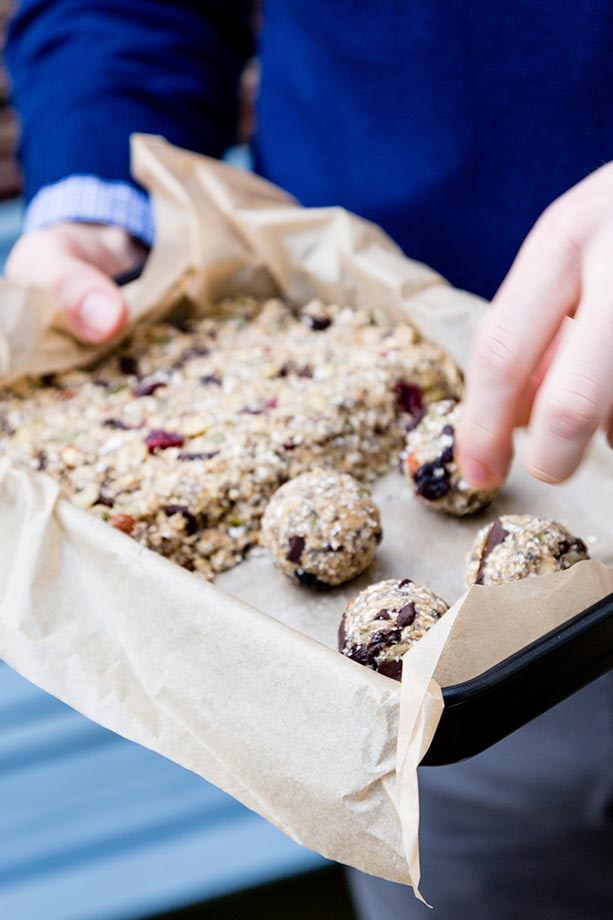
What are your hydration recommendations for golfers who are on the golf course for 4-5 hours in cool and hot conditions?
Hydration is one of the areas I believe could offer the greatest benefits to golfer’s performance. It is well established that even mild dehydration can impede physical and mental performance; with such a high level of precision of skill required in golf it is clear that optimum hydration plays a vital role in performance. There are a number of approaches a golfer can take to their hydration depending on conditions and if it’s a practice round or tournament.
Water is usually fine for a practice round if consumed in sufficient amounts and if the conditions are temperate. However, if it’s warm or if you are playing a 2-4 day competition then an electrolyte drink is advisable. Using hydration (electrolyte) tablets with water is one practical way of creating your own electrolyte drink. Fluid intake in the heat must be significantly increased compared to mild or cold conditions. Recommendations will vary depending on body size and sweat rates but aim to consume 200 -300 mL of an electrolyte solution every 15 minutes in the heat. If you are sweating profusely then fluid intake may need to be even higher. If you would like to read more on the importance of hydration and hydration strategies for performance click here
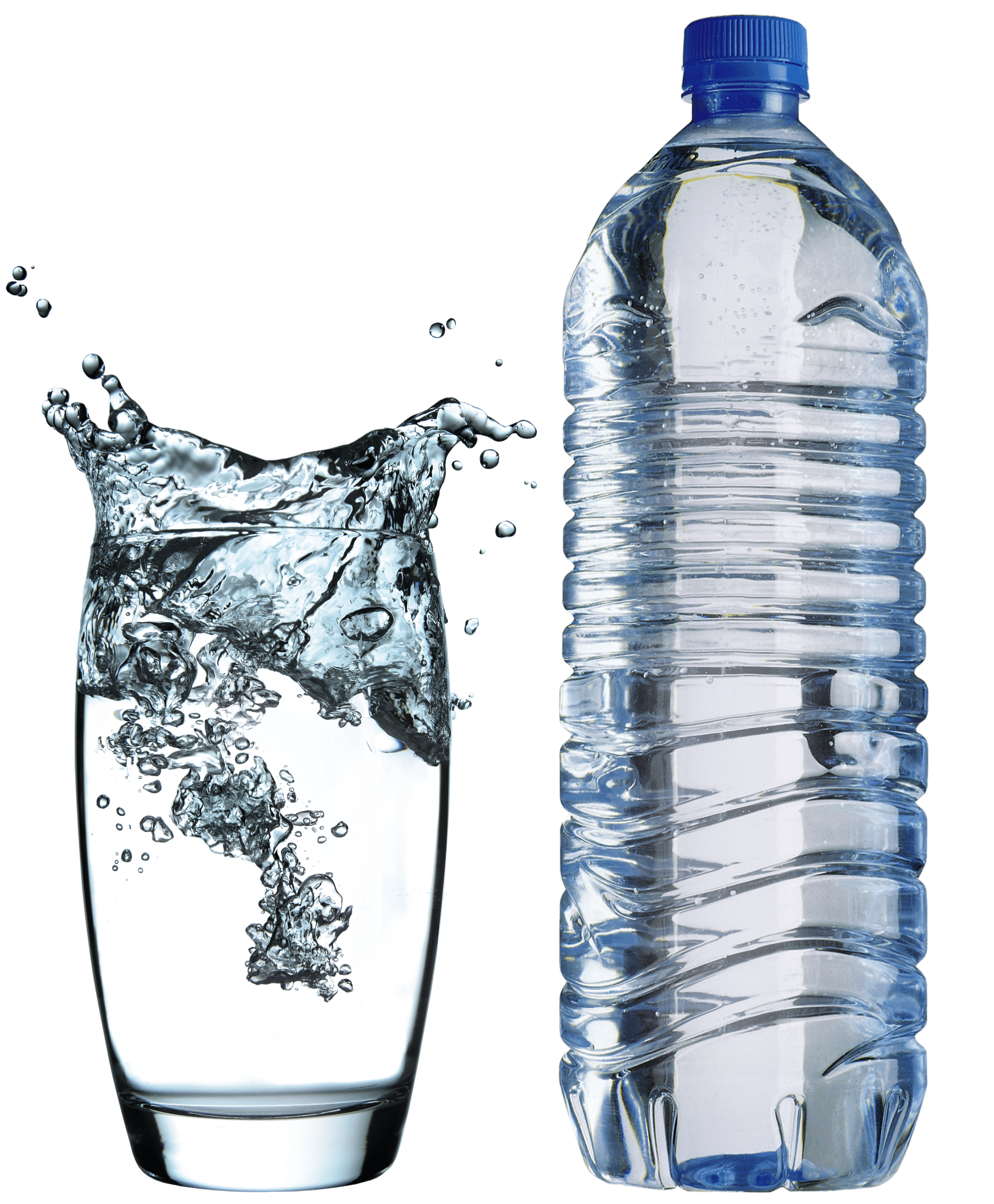
References
Hillyer, M., Menon, K., Singh, R., Hillyer, M. and Menon, K., 2015. The effects of dehydration on skill-based performance. Int J Sports Sci, 5(3), pp.99-107.
Stevenson, E.J., Hayes, P.R. and Allison, S.J., 2009. The effect of a carbohydrate–caffeine sports drink on simulated golf performance. Applied Physiology, Nutrition, and Metabolism, 34(4), pp.681-688.
American College of Sports Medicine (2009) American College of Sports Medicine position stand. Nutrition and athletic performance. Med Sci Sports Exerc.
41(3):709-31

